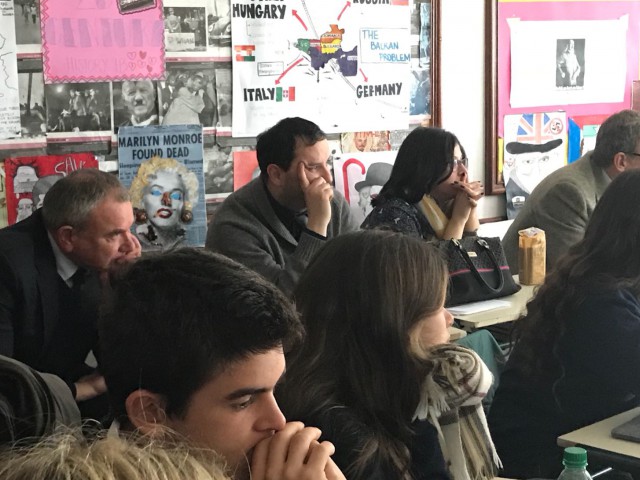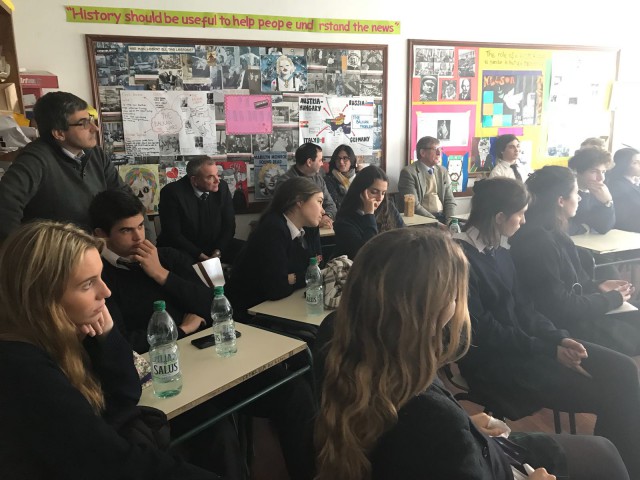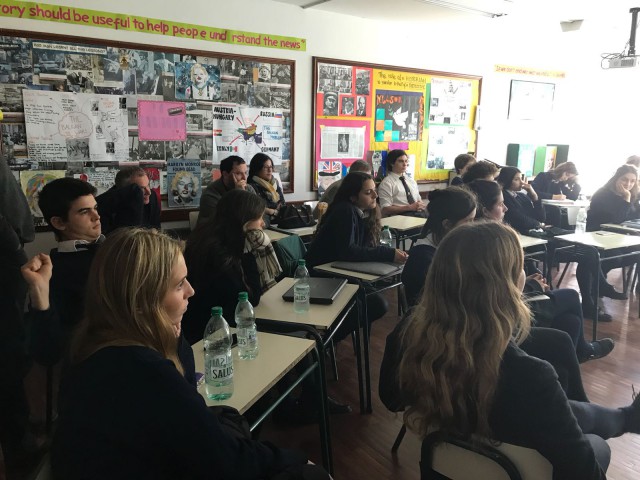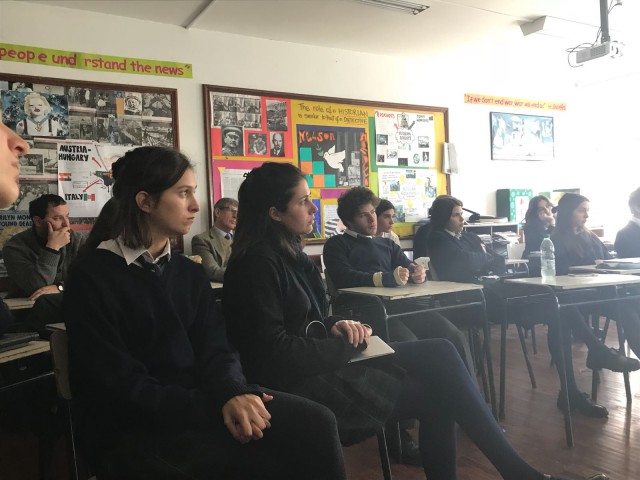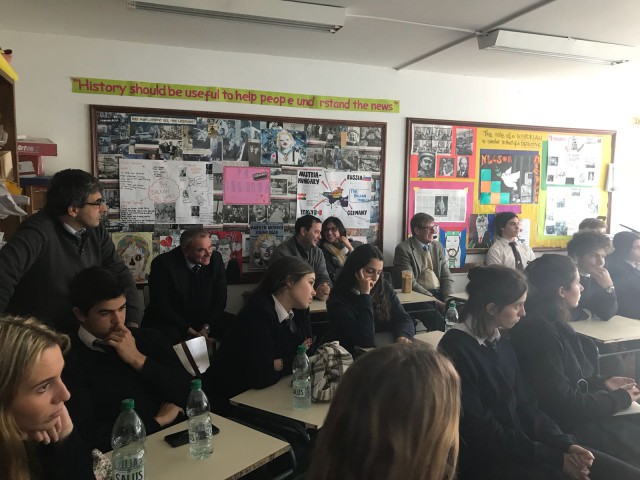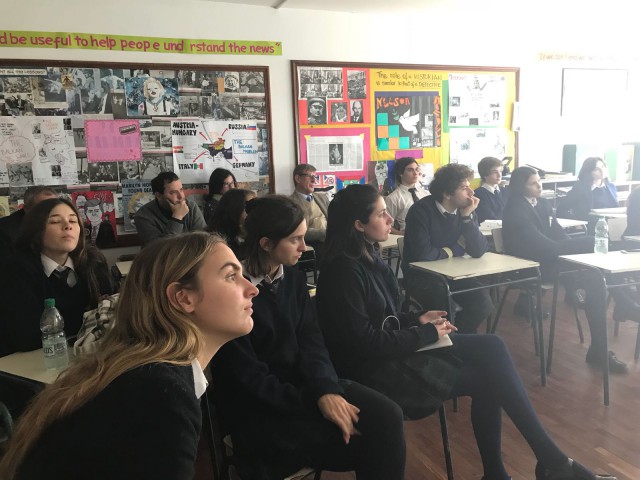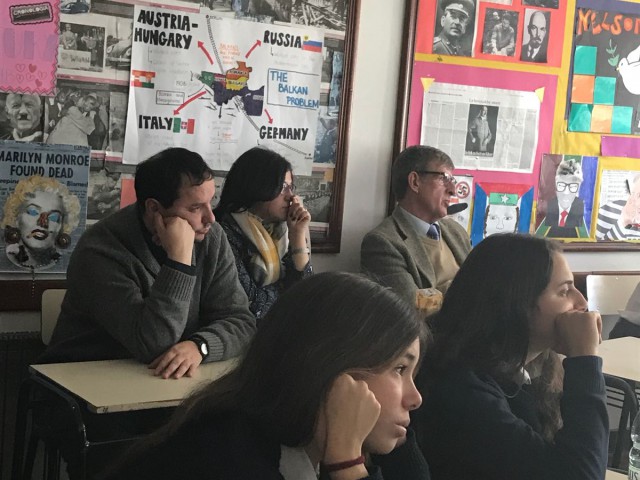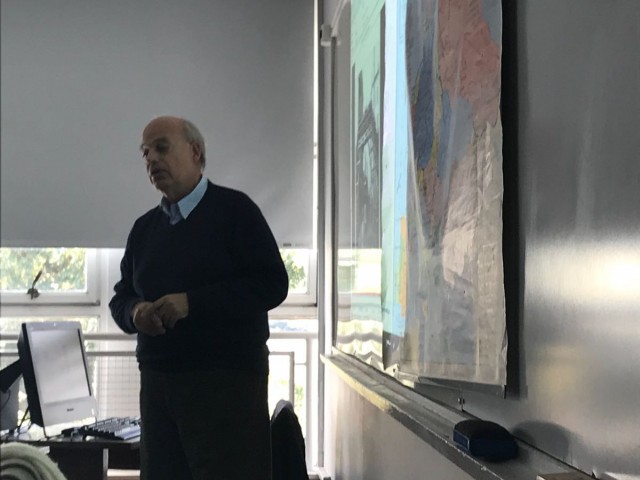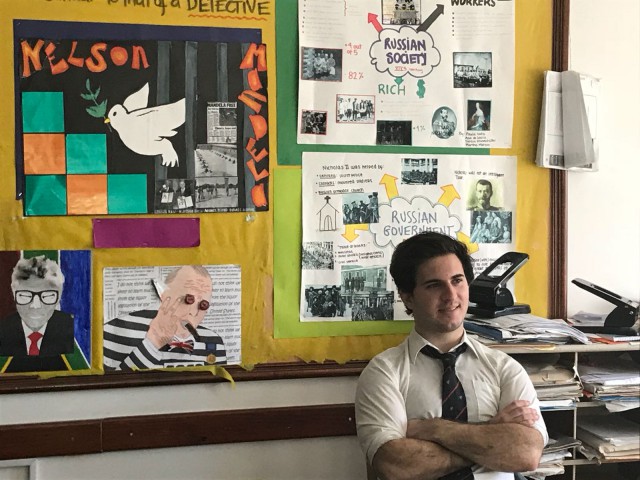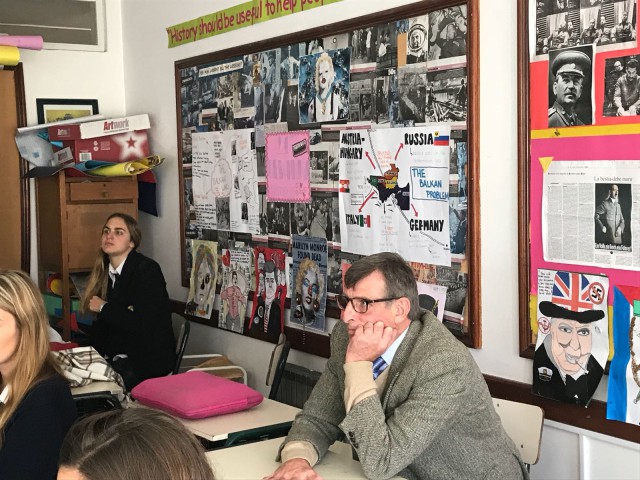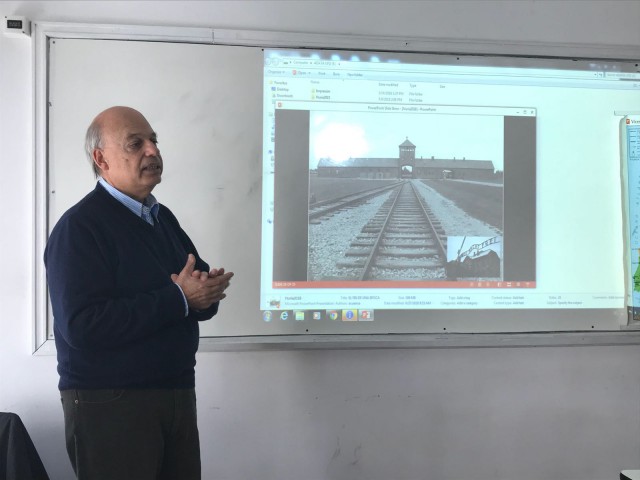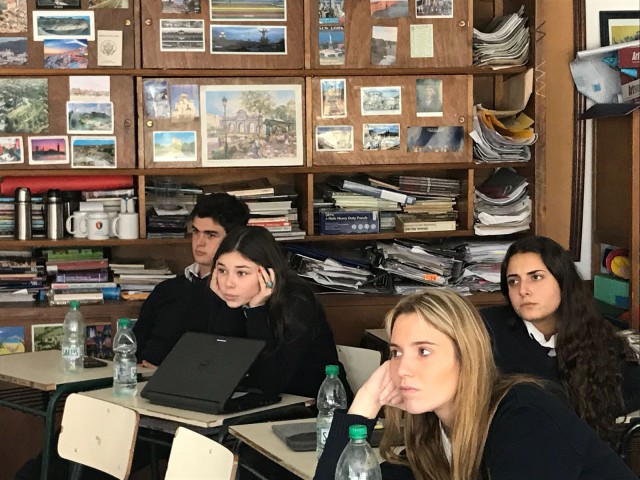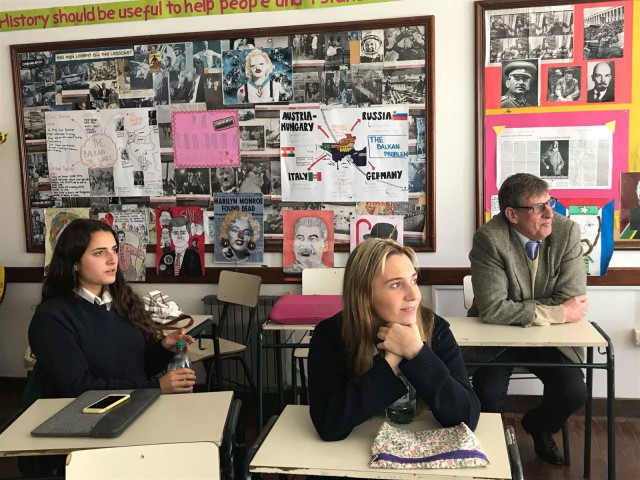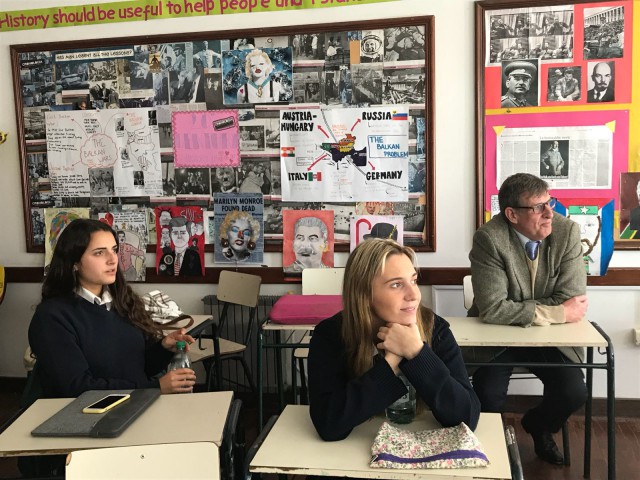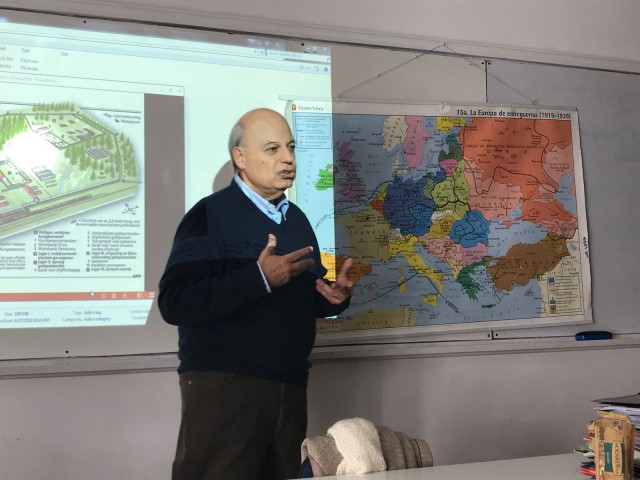IB - HISTORY TALK
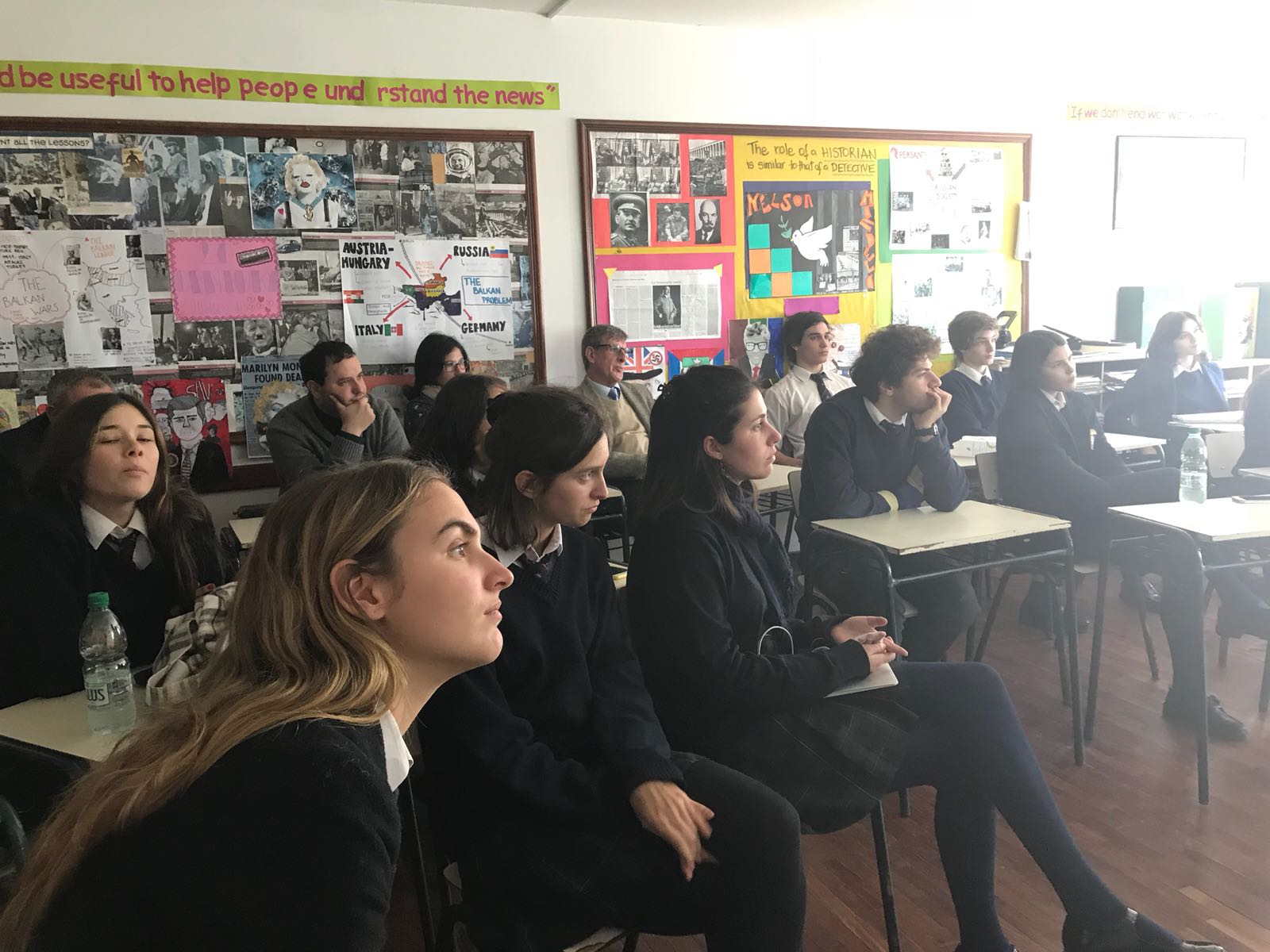
On Wednesday 27, June, the IB History 6th year groups, (Uppers and Lowers) received the visit of Alvaro Cuenca, coinciding with the teaching of the World War II period. Alvaro is a former pupil of the school (G71) has a degree in Computer Sciences from the University of Uruguay, a BA (English Literature) from the University of London and an MBA (Educational Management) from the University of Leicester. He has also written several books on the “British community in Uruguay” and one on the Lodz ghetto, an episode of the Holocaust. His other research interests are the British Empire and the XX Century conflicts.
On this midday, in particular, the talk centered on the debate on the importance of the Eastern Front for the culmination of the war, versus the importance of the Western Front for the post-war events in Europe. There was an active audience participation: IB2 students, several Heads and Historia teachers who attended this cultural lunch.
Alvaro referred several times to the English historian Norman Davies and his book on the controversial issue: “No easy victory.”
Afterwards the talk centered itself on the Lodz ghetto that accounted for the death of 200,000 Jews and was the most important ghetto in number after the Warsaw ghetto. Notwithstanding its lesser number the Lodz ghetto was the first one to be established (December 1939) and the last to vanish into thin air (August 1944) when the last of the Jews were sent to Auschwitz. It was also the only “productive ghetto” as its inhabitants had to work in the textile factories to earn their living. Ironically the best client of their production was the German Armed Forces.
The Final Solution was also addressed, specifically in what concerns to “Operation Reinhardt” (the elimination of 3,000,000 Jews living in the General Government (Eastern Poland); and the stories of Jewish survivors living in Uruguay, all of whom passed through the Auschwitz living Hell.
A general talk on the XX Century conflicts was also part of the topic. The importance of the Great War was one of the subjects with the momentum social, political, cultural and artistic changes that faced the Western Civilization at its end.
